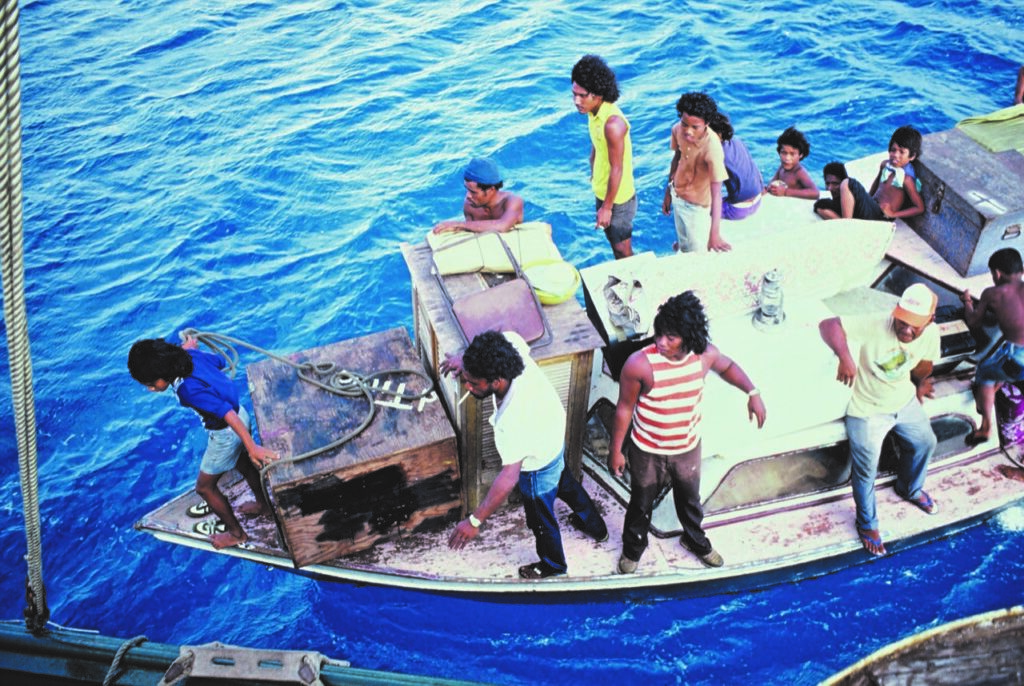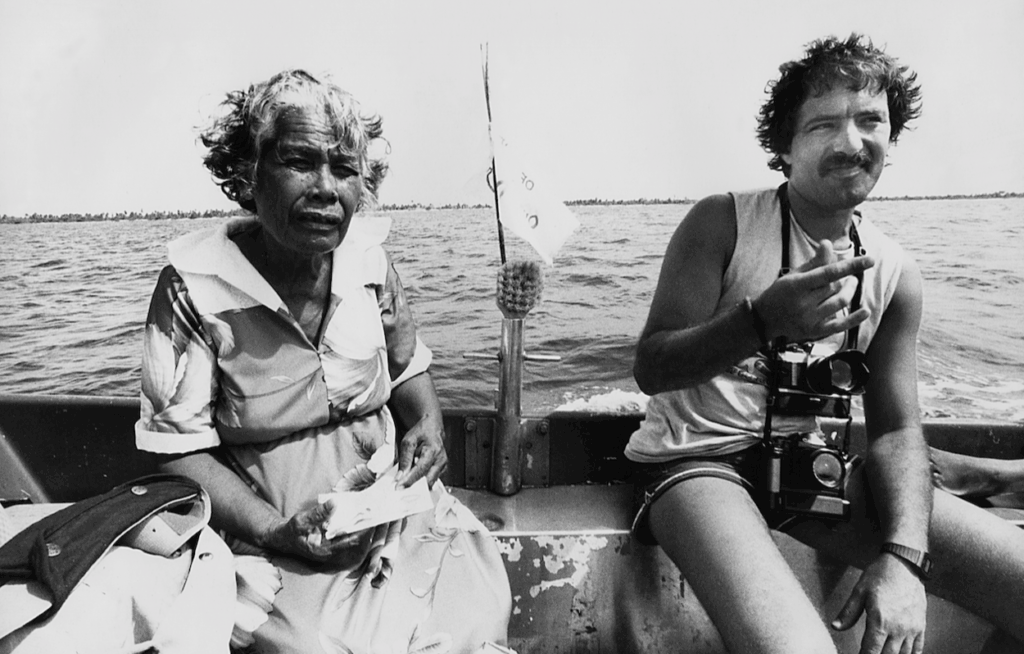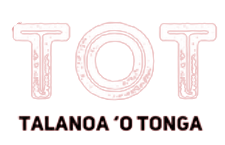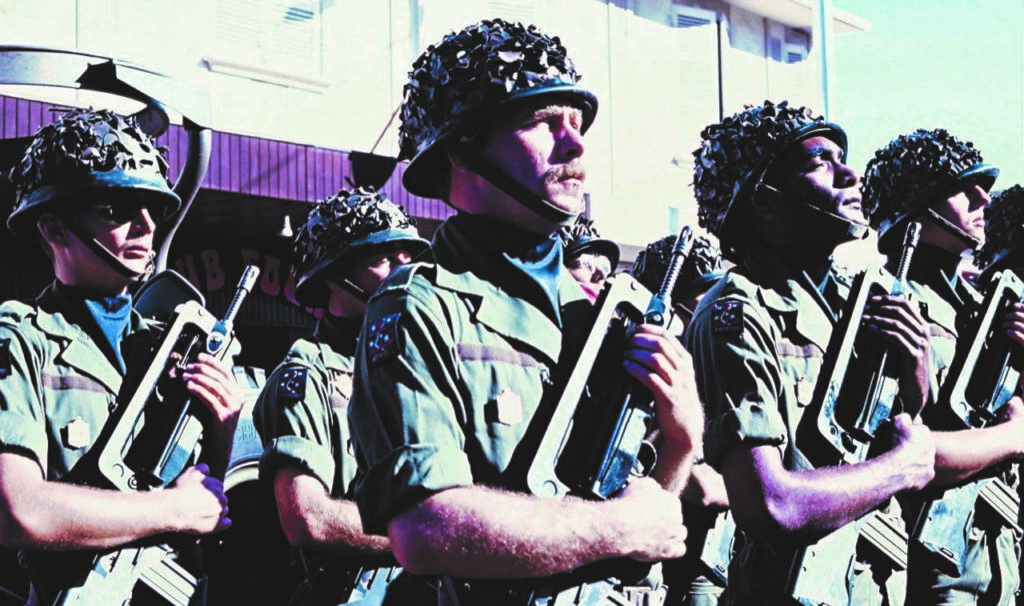The bombing of the Rainbow Warrior on 10 July 1985, with the death of Greenpeace photographer Fernando Pereira, was a terrible tragedy. But a greater tragedy is the horrendous legacy of Pacific nuclear testing for the people of Rongelap, the Marshall Islands and “French” Polynesia, the associated military oppression in Kanaky (New Caledonia), and lingering secrecy.
Between the United States and France, nearly 300 nuclear weapons were tested, resulting in contamination of indigenous peoples. The British are also to blame.
Almost eight decades since the US tests began, a year after Hiroshima and Nagasaki, the “Pacific” nuclear powers have still failed to take full responsibility for the region and adequately compensate victims for the injustices of the past. The Pacific Islands Forum (PIF), Melanesian Spearhead Group (MSG), other pan-Pacific agencies and the Australian and New Zealand governments still have much work ahead.
In my new book Eyes of Fire: The Last Voyage and Legacy of the Rainbow Warrior, which reflects on the consequences of the French secret service’s bombing of the Greenpeace flagship in Auckland Harbour and the killing of Pereira, I have argued that New Zealand and the PIF states should have vigorously supported the lawsuits of the Republic of the Marshall Islands in the International Court of Justice (ICJ) and the US Federal Court. This was an opportunity lost.
In 2014, the Marshall Islands sued nine world powers. The late Tony deBrum, Marshall Islands Foreign Minister at the time, declared that the lawsuits were a final bid to establish a global conversation on nuclear disarmament. He said:
Our people have suffered the catastrophic and irreparable damages of these weapons, and we vow to fight so that no one else on Earth will ever again experience these atrocities.
New Zealand and the PIF states should now require full investigations of nuclear testing in the Marshall Islands and French Polynesia to support a more robust compensation program than currently exists. New Zealand and the PIF states also need to take a less ambiguous position on decolonisation in the Pacific, give greater priority to that issue and seek a “re-energising” of the activities of the UN Special Committee on Decolonisation.
This is especially important in relation to French Polynesia and New Caledonia and, also for Bougainville as it approaches the end of the transitional political autonomy period with a unilateral declaration of independence from Papua New Guinea slated for 1 September 2027.
Decolonisation is also a critical issue in New Zealand’s relations with Indonesia, particularly in relation to the six Melanesian provinces that make up the region known in the Pacific as “West Papua” and Indonesia’s growing and politically motivated role in the region with respect to climate aid. It is important that New Zealand and the PIF states take a lead from the MSG — at least those states other than Fiji and PNG, which have both been co-opted by Indonesian bribery in the form of economic aid. They should take a more pro-active stance on West Papuan human rights and socio-political development, with a view to encouraging a process of political self-determination and a new, more credible UN-supervised vote replacing the 1969 “Act of No Choice”.

With regard to the present-day environmental threat of climate change, it is essential to address the lack of an officially recognised category for “climate refugee” under international law. It is also important to seek an international framework, convention, protocol and specific guidelines that can provide protection and assistance for people crossing international borders because of climate change. The existing rights guaranteed refugees — specifically the right to international humanitarian assistance and the right of return — must be extended to climate refugees. This issue should be acted on by the PIF with the Australian and New Zealand governments.
More generally, Australia and New Zealand need to respond to Pacific Island countries’ concerns over climate change and global warming with a greater sense of urgency and resolve. Vitally important here is the current landmark ICJ case brought by a coalition of 132 countries, initiated by innovative and frustrated law students at the University of the South Pacific’s Vanuatu campus, seeking an advisory opinion on the obligations of states over climate crisis. An opinion is expected on 23 July.
Regional and country-specific climate change plans and policies are needed to deal with large numbers of Pacific refugees. This is especially important for New Zealand, as a country with a significant Pacific population (442,632 people or 8.9% according to the 2023 Census) that is well integrated into the national infrastructure, and a country well placed to welcome more Pacific Islanders.
In April 2025, the New Zealand Government announced plans to double defence spending as a share of GDP over the next eight years under its long-awaited Defence Capability Plan. However, it appeared the priority was to join a new Donald Trump-inspired global arms race while the country faced no threat, at the expense of the climate change, nuclear-free Pacific and regional peacemaking policies and actions that have forged the country’s global reputation. Speculation was also rife about the possibility of New Zealand joining a second tier of the controversial AUKUS security pact between Australia, the UK and the US, which would raise geopolitical tensions with little benefit for the Pacific region.
In the prologue to my book, former New Zealand Prime Minister Helen Clark is forthright on this issue as she laments the undermining of the country’s independent foreign policy and respect for the international rule of law. In 2003, Clark demonstrated New Zealand’s independence by refusing to support an illegal US invasion of Iraq. The wisdom of her stance was revealed by the military quagmire faced by the George W. Bush administration. New Zealand also showed independent leadership with the 2021 Treaty on the Prohibition of Nuclear Weapons, which has now been ratified by 73 states.
However, as Clark argues, the global multilateral system is now in crisis — across all its dimensions:
The UN Security Council is paralysed by great power tensions. The United States is unlikely to pay its dues to the UN under the Trump presidency, and others are unlikely to fill the substantial gap which that leaves. Its humanitarian, development, health, human rights, political and peacekeeping, scientific and cultural arms all face fiscal crises. This is the time for New Zealand to link with the many small and middle powers across regions who have a vision for a world characterised by solidarity and peace and which can rise to the occasion to combat the existential challenges it faces — including of nuclear weapons, climate change, and artificial intelligence. As Marshall Islands Journal Editor Giff Johnson has remarked, the people of Rongelap changed the course of history for Pacific nuclear justice by taking control of their destiny with the help of Greenpeace’s Rainbow Warrior. However, the relocation of the islanders four decades ago has revealed that the legacy of nuclear testing remains unfinished business.

“On the fateful last voyage,” reflects Greenpeace Aotearoa Executive Director Dr Russel Norman, “the crew of the Rainbow Warrior, look at us in black and white through the lens of time, and lay down the wero – the challenge. They faced down a nuclear threat to the habitability of the Pacific. Do we have the courage and wits to face down the biodiversity and climate crises facing humanity, crises that threaten the habitability of planet Earth?”
To Ngati Kuri Kaumatua Dover Samuels says the Rainbow Warrior was “probably the biggest battleship that ever traversed the oceans of the world. But she wasn’t armed with guns, she was armed with peace”.
David Robie travelled as a journalist with the Greenpeace campaigners on their 1985 mission to relocate 320 Rongelap Islanders in the Marshall Islands who had suffered from a legacy of radiation from the 1954 Castle Bravo thermonuclear test and was on board the Rainbow Warrior for almost 11 weeks before the bombing.
Source: Devpolicy Blog (devpolicy.org). Dr David Robie is founding editor of Pacific Journalism Review, former director of the Pacific Media Centre, and previously a head of journalism at both the University of Papua New Guinea and the University of the South Pacific. The views expressed in this article are his and do not necessarily reflect the views of Talanoa ‘o Tonga.




